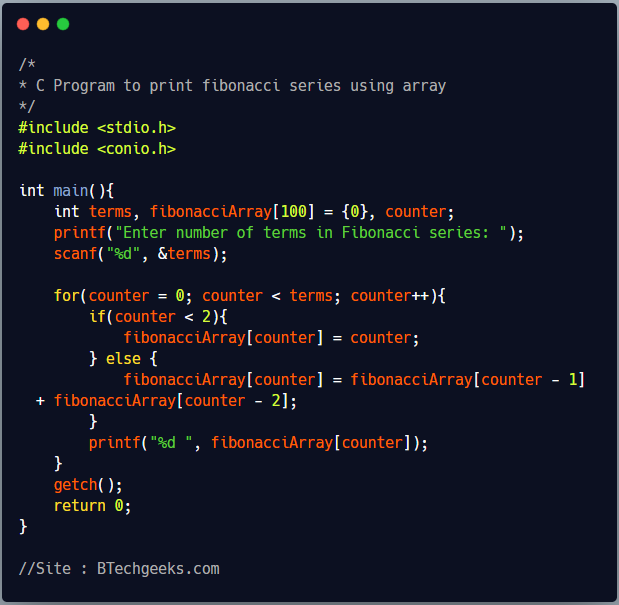

- OPENMP FIBONACCI SERIES C PROGRAM HOW TO
- OPENMP FIBONACCI SERIES C PROGRAM SERIAL
- OPENMP FIBONACCI SERIES C PROGRAM MANUAL
- OPENMP FIBONACCI SERIES C PROGRAM SOFTWARE
OPENMP FIBONACCI SERIES C PROGRAM SERIAL
Here is how I attempted it, and after input size of 20 parallel version runs a bit faster than serial (like in 70-80% time). With this we set a number of threads and we will return the current number of. I still believe there should be a way to do this (if somebody know, kindly let me know). For C/C++ code the directives take the form of pragmas. So I have to manually specify after which level not to create more tasks. OpenMP consists of a series of program directives and a small number of function/subroutine.
OPENMP FIBONACCI SERIES C PROGRAM HOW TO
I believe I do not know how to tell the compiler not to create parallel task after a certain depth as: omp_set_max_active_levels seems to have no effect and omp_set_nested is deprecated (though it also has no effect). provide you with the program HW-OpenMP-2.8.c, which runs a number of for loops, each with. The following code is for test purposes for the OP to test #define CUTOFF 5 pragma omp parallel for default(none) shared(v, indices, n). There need to be 2 versions of the function and when the thread goes too deep, it continues the recursion with single threading.ĮDIT: cutoff variable needs to be increased before entering OMP zone.
OPENMP FIBONACCI SERIES C PROGRAM MANUAL
In this OpenMP/Tasks wiki page, it is mentioned and a manual cut off is suggested. If your codes try to create too many threads, mostly by recursive methods, this may cause a delay to all running threads causing a massive set back. There is also another bottleneck for threading. Multi-threading shows increase in speed if the job normally takes time longer than second, not milliseconds.

OpenMP code is closer to serial code one. For smaller jobs, which is done very fast on a single core, threading slows the job down because of this. It releases programmers from complicated multi-thread APIs and helps them develop high-performance parallel programs. In multi-threading, it takes some time to initialize work on CPU cores. Std::cout << "Time(ms): " << time*1000 << std::endl In mathematics, the Fibonacci numbers or Fibonacci series or Fibonacci sequence are the numbers in the following integer sequence:0 1 1 2 3 5 8 13 21 34 55. If (n < 20) //EDITED CODE TO INCLUDE CUTOFFĭouble time = omp_get_wtime() - start_time Do people get better speed when running the below on 4 threads than on 1 thread? I'm getting a 10 times slowdown when running on 4 cores (I should be getting moderate speedup rather than significant slowdown). Note: There are more efficient algorithms for computing Fibonacci numbers. cl.exe /EHsc /openmp concrt-omp-fibonacci-reduction. C, C++ and Fortran base languages with single program multiple data (SPMD). The first two terms are zero and one respectively. The following code is actually based on a similar question: OpenMP recursive tasks but when trying to implement one of the suggested answers, I don't get the intended speedup, which suggests I've done something wrong (and not sure what it is). Copy the example code and paste it in a Visual Studio project, or paste it in a file that is named concrt-omp-fibonacci-reduction.cppand then run the following command in a Visual Studio Command Prompt window. Fibonacci Series in C Fibonacci series is a series of numbers formed by the addition of the preceding two numbers in the series.

(idb) b 6īreakpoint 1 at 0x804898e: file /fib.C, line 6.I'm trying to understand why the following runs much faster on 1 thread than on 4 threads on OpenMP.

OPENMP FIBONACCI SERIES C PROGRAM SOFTWARE
The following output illustrates the type of information that idb info task displays. Software and workloads used in performance tests may have been optimized for. Consider the following source code: 1 #include The program being debugged in this example calculates the 5th Fibonacci number by spawning tasks to calculate the previous two numbers recursively.


 0 kommentar(er)
0 kommentar(er)
